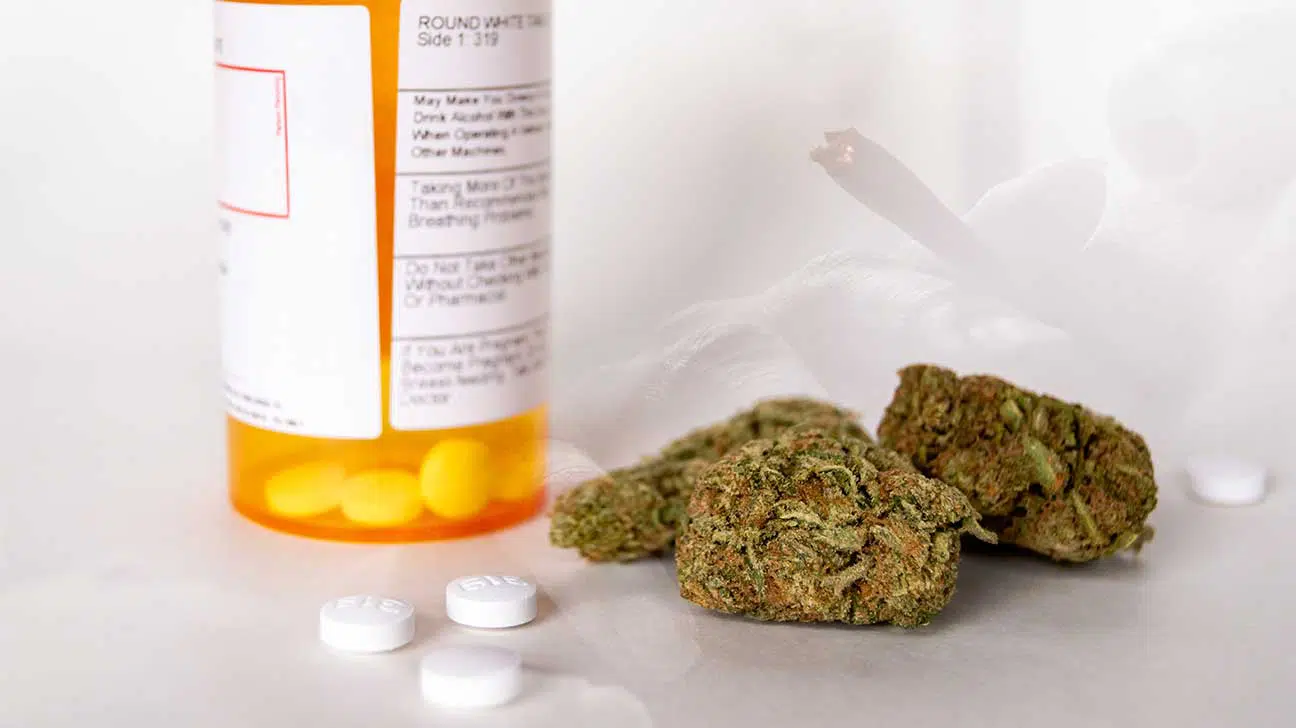
Combining opioids and hallucinogens can have different effects. Using the drugs together can cause a fatal overdose.
In some cases, opioids may antagonize the effects of various hallucinogens. This means the opioid blocks the stimulating effects of the hallucinogen.
In other cases, opioids may exacerbate the effects of hallucinogens.
Find out more about the dangers of polysubstance abuse
What Influences Opioid Interactions With Hallucinogens?
Opioids can either antagonize or enhance the effects of hallucinogenic drugs like LSD and DMT (dimethyltryptamine).
What determines the type of influence opioids have on these drugs is the type of hallucinogen and the dose of the opioid.
Research has found that at lower doses, opioids antagonize the effects of hallucinogens. But at higher doses, opioids have the opposite reaction and enhance hallucinogenic effects.
Effects Of Mixing Opioids And Hallucinogens
In a 2007 study on polydrug use in New York City, researchers found that mixing substances like opioids and hallucinogens is extremely dangerous and can be fatal.
The study found that one drug combination, in particular, proved fatal: ketamine and heroin.
Researchers noted that many people combined substances in order to reduce unwanted effects from one or both drugs, but mixing the substances creates major health risks.
Some of these include:
- suppression of the central nervous system (CNS)
- decreased respiratory functions
- fatal overdose
Risks With Mixing Opioids And Hallucinogens
If opioids and hallucinogens are mixed, there’s a much bigger risk of fatal opioid overdose.
While there have been no known hallucinogen-related deaths, opioid overdoses have claimed thousands of lives in the U.S. and across the globe, and mixing the two increases this risk.
Overdosing on opioids can result in death, and it doesn’t always take a large amount of an opioid drug to overdose.
The lethal dose of fentanyl is just 2 milligrams (mg), and the lethal dose of morphine is 200 mg. A person’s threshold may be even lower if they’re not opioid-tolerant.
When bringing hallucinogens into the mix, a person using the drugs won’t be in the right frame of mind and can easily ingest too high of an opioid dose.
An opioid overdose can induce life-threatening responses such as:
- coma
- respiratory depression
- significantly decreased heart rate
- vomiting
- limp muscles
Common Opioid And Hallucinogen Combinations
There are a few common combinations of hallucinogens and opioid drugs.
A few of these include:
- heroin and LSD
- heroin and hallucinogens
- oxycodone and hallucinogens
- hydrocodone and hallucinogens
- fentanyl and hallucinogens
- codeine and hallucinogens
- morphine and hallucinogens
- carfentanil and hallucinogens
Getting Treatment For Opioid And Hallucinogen Addiction
If you or someone you love are abusing opioids, hallucinogens, or both substances, you’re not alone. These powerful substances have a high potential for abuse.
There are resources, specialists, and addiction treatment centers available to help you or your loved one overcome an addiction to opioids and hallucinogens.
To learn more about these addiction treatment programs, call our helpline.
Addiction Resource aims to provide only the most current, accurate information in regards to addiction and addiction treatment, which means we only reference the most credible sources available.
These include peer-reviewed journals, government entities and academic institutions, and leaders in addiction healthcare and advocacy. Learn more about how we safeguard our content by viewing our editorial policy.
- National Institute on Drug Abuse (NIDA)—Hallucinogens DrugFacts
https://www.drugabuse.gov/publications/drugfacts/hallucinogens - National Institute on Drug Abuse (NIDA)—Prescription Opioids DrugFacts
https://www.drugabuse.gov/publications/drugfacts/prescription-opioids - U.S. National Library of Medicine—Patterns of Polydrug Use Among Ketamine Injectors in New York City
https://www.ncbi.nlm.nih.gov/pmc/articles/PMC1899171/ - U.S. National Library of Medicine: PubMed—Opioid-hallucinogen interactions
https://pubmed.ncbi.nlm.nih.gov/3006089/


